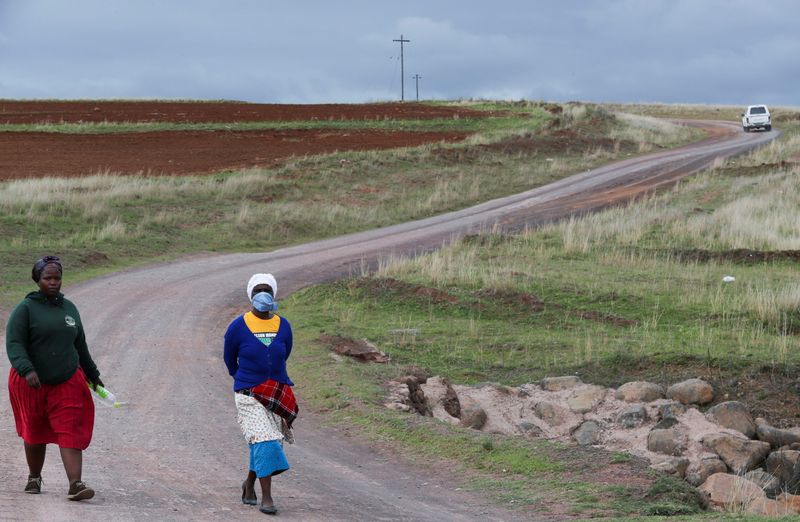By Alexander Winning
JOHANNESBURG (Reuters) - The Omicron coronavirus variant detected in southern Africa could be the most likely candidate to displace the highly contagious Delta variant, the director of South Africa's communicable disease institute said on Tuesday.
The discovery of Omicron has caused global alarm, with countries limiting travel from southern Africa for fear it could spread quickly even in vaccinated populations and the World Health Organization saying it carries a high risk of infection surges.
"We thought what will outcompete Delta? That has always been the question, in terms of transmissibility at least, ... perhaps this particular variant is the variant," Adrian Puren, acting executive director of South Africa's National Institute for Communicable Diseases (NICD), told Reuters in an interview.
If Omicron proves even more transmissible than the Delta variant, it could lead to a sharp spike in infections that could put pressure on hospitals.
Puren said scientists should know within four weeks to what extent Omicron can evade the immunity generated by vaccines or prior infection, and whether it leads to worse clinical symptoms than other variants.
Anecdotal accounts by doctors who have treated South African COVID-19 patients say Omicron appears to be producing mild symptoms, including a dry cough, fever and night sweats, but experts have cautioned against drawing firm conclusions.
Puren said it was too early to say whether Omicron was displacing Delta in South Africa, since local scientists have only produced 87 sequences of Omicron so far.
But the fact that cases have started to rise rapidly, especially in the most populated Gauteng province, is a sign that some displacement might already be happening.
Delta drove a third wave of COVID-19 infections in South Africa that peaked at more than 26,000 cases per day in early July. Omicron is expected to trigger a fourth wave, with daily infections seen topping 10,000 by the end of the week from around 2,270 on Monday.
Anne von Gottberg, a clinical microbiologist at the NICD, said it looked like infections were rising throughout the country.
On Monday, an NICD presentation a flagged a large number of COVID-19 admissions among infants aged under two years as an area of concern. But von Gottberg cautioned against linking that with Omicron just yet.
"It looks like in fact some of those admissions might have started before the emergence of Omicron. We are also seeing that there was an increase in influenza cases just in the last month or so, and so we need to be really careful to look at the other respiratory infections," she said.
"We are looking at the data very, very carefully, but at the moment I'm not too sure that we can link it definitively to Omicron."

South Africa has been praised for alerting the global scientific community and WHO so quickly to Omicron -- a brave move given the damage that travel restrictions imposed by multiple countries including Britain will do to its important tourism sector.
The country has reported close to 3 million COVID-19 infections during the pandemic and over 89,000 deaths, the most on the African continent.
